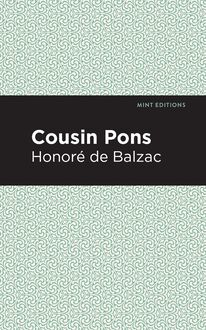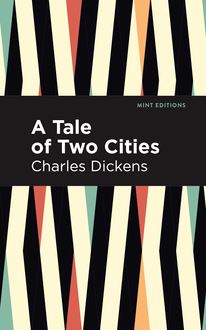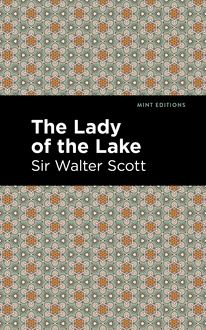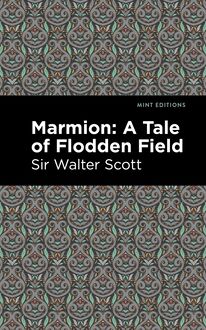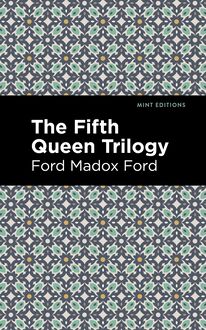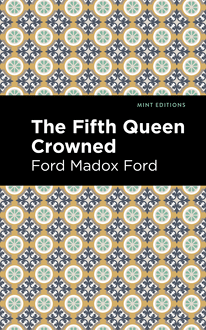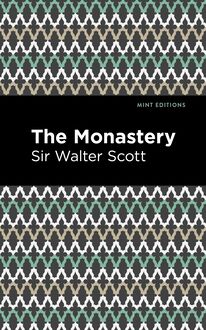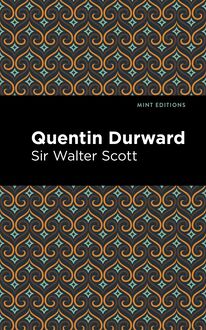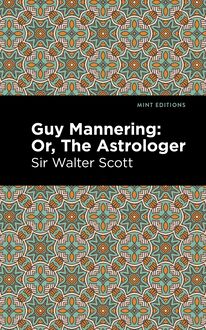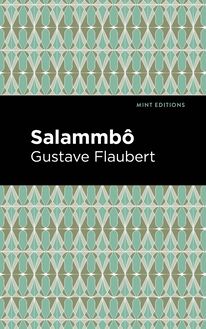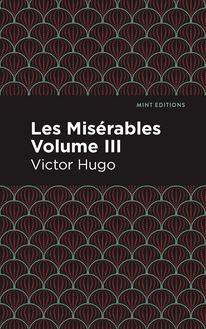-
 Univers
Univers
-
 Ebooks
Ebooks
-
 Livres audio
Livres audio
-
 Presse
Presse
-
 Podcasts
Podcasts
-
 BD
BD
-
 Documents
Documents
-
- Cours
- Révisions
- Ressources pédagogiques
- Sciences de l’éducation
- Manuels scolaires
- Langues
- Travaux de classe
- Annales de BEP
- Etudes supérieures
- Maternelle et primaire
- Fiches de lecture
- Orientation scolaire
- Méthodologie
- Corrigés de devoir
- Annales d’examens et concours
- Annales du bac
- Annales du brevet
- Rapports de stage
La lecture à portée de main
Vous pourrez modifier la taille du texte de cet ouvrage
Découvre YouScribe en t'inscrivant gratuitement
Je m'inscrisDécouvre YouScribe en t'inscrivant gratuitement
Je m'inscrisEn savoir plus
Vous pourrez modifier la taille du texte de cet ouvrage
En savoir plus

Description
War and Peace (1869) is a novel by Russian writer Leo Tolstoy. Serialized between 1865 and 1867, it was published in book form in 1869 and has since been recognized as a masterpiece of world literature. Notable for its epic scale, War and Peace encompasses hundreds of characters, diligently following its five central families across fifteen years while featuring detailed imaginings of such historical figures as Napoleon Bonaparte. In Books VI-X, he explores the emotions of his wide cast of characters who, during a period of tenuous peace, attempt to return to a sense of normalcy. Following Napoleon’s defeat of Russian and Austrian forces at the Battle of Austerlitz, the Rostov, Bezukhov, and Bolkonsky families struggle to adapt to a changing world. While Prince Andrei attempts to balance his political obligations with his growing affection for Natasha Rostov, his friend Pierre finds himself at a crossroads. Disillusioned with Freemasonry, obsessed with discovering a way to live ethically, he grows increasingly volatile and despondent. When Natasha is attacked by the vicious Anatole Kuragin, Pierre finds himself in the position of comforting her, and they soon form a strong attachment. After several years, however, Napoleon’s army begins advancing on Russia once more, bringing uncertainty and chaos to its traumatized people. With its juxtaposition of political peace with the private and public turmoil of his characters, Tolstoy’s story brings history to life while reminding us that the past is always closer than we care to think. As ambitious as it is triumphant, Leo Tolstoy’s masterpiece is an epic novel of history and family, a story of faith and the will to persevere in the face of unspeakable catastrophe. War and Peace is a work that transcends both history and description, not just for the scale of its narrative and setting, but for the scope of its philosophical interests. Since its publication, it has been praised as an essential work of literature by Ivan Turgenev, Gustave Flaubert, Thomas Mann, and Ernest Hemingway, and has been adapted for film, theater, and television countless times. With a beautifully designed cover and professionally typeset manuscript, this edition of Leo Tolstoy’s War and Peace is a classic of Russian literature reimagined for modern readers.
Sujets
Informations
| Publié par | Mint Editions |
| Date de parution | 22 juin 2021 |
| Nombre de lectures | 0 |
| EAN13 | 9781513286839 |
| Langue | English |
| Poids de l'ouvrage | 2 Mo |
Informations légales : prix de location à la page 0,0550€. Cette information est donnée uniquement à titre indicatif conformément à la législation en vigueur.
Extrait
War and Peace
Books VI–X
Leo Tolstoy
War and Peace: Books VI–X was first published in 1867.
This edition published by Mint Editions 2021.
ISBN 9781513281810 | E-ISBN 9781513286839
Published by Mint Editions®
minteditionbooks.com
Publishing Director: Jennifer Newens
Design & Production: Rachel Lopez Metzger
Project Manager: Micaela Clark
Translated by: Louise and Aylmer Maude
Typesetting: Westchester Publishing Services
C ONTENTS B OOK S IX . 1808–10 I II III IV V VI VII VIII IX X XI XII XIII XIV XV XVI XVII XVIII XIX XX XXI XXII XXIII XXIV XXV XXVI B OOK S EVEN . 1810–11 I II III IV V VI VII VIII IX X XI XII XIII B OOK E IGHT . 1811–12 I II III IV V VI VII VIII IX X XI XII XIII XIV XV XVI XVII XVIII XIX XX XXI XXII B OOK N INE . 1812 I II III IV V VI VII VIII IX X XI XII XIII XIV XV XVI XVII XVIII XIX XX XXI XXII XXIII B OOK T EN . 1812 I II III IV V VI VII VIII IX X XI XII XIII XIV XV XVI XVII XVIII XIX XX XXI XXII XXIII XXIV XXV XXVI XXVII XXVIII XXIX XXX XXXI XXXII XXXIII XXXIV XXXV XXXVI XXXVII XXXVIII XXXIX
BOOK SIX
1808–10
I
P rince Andrew had spent two years continuously in the country.
All the plans Pierre had attempted on his estates—and constantly changing from one thing to another had never accomplished—were carried out by Prince Andrew without display and without perceptible difficulty.
He had in the highest degree a practical tenacity which Pierre lacked, and without fuss or strain on his part this set things going.
On one of his estates the three hundred serfs were liberated and became free agricultural laborers—this being one of the first examples of the kind in Russia. On other estates the serfs’ compulsory labor was commuted for a quitrent. A trained midwife was engaged for Boguch á rovo at his expense, and a priest was paid to teach reading and writing to the children of the peasants and household serfs.
Prince Andrew spent half his time at Bald Hills with his father and his son, who was still in the care of nurses. The other half he spent in “Boguch á rovo Cloister,” as his father called Prince Andrew’s estate. Despite the indifference to the affairs of the world he had expressed to Pierre, he diligently followed all that went on, received many books, and to his surprise noticed that when he or his father had visitors from Petersburg, the very vortex of life, these people lagged behind himself—who never left the country—in knowledge of what was happening in home and foreign affairs.
Besides being occupied with his estates and reading a great variety of books, Prince Andrew was at this time busy with a critical survey of our last two unfortunate campaigns, and with drawing up a proposal for a reform of the army rules and regulations.
In the spring of 1809 he went to visit the Ryaz á n estates which had been inherited by his son, whose guardian he was.
Warmed by the spring sunshine he sat in the cal è che looking at the new grass, the first leaves on the birches, and the first puffs of white spring clouds floating across the clear blue sky. He was not thinking of anything, but looked absent-mindedly and cheerfully from side to side.
They crossed the ferry where he had talked with Pierre the year before. They went through the muddy village, past threshing floors and green fields of winter rye, downhill where snow still lodged near the bridge, uphill where the clay had been liquefied by the rain, past strips of stubble land and bushes touched with green here and there, and into a birch forest growing on both sides of the road. In the forest it was almost hot, no wind could be felt. The birches with their sticky green leaves were motionless, and lilac-colored flowers and the first blades of green grass were pushing up and lifting last year’s leaves. The coarse evergreen color of the small fir trees scattered here and there among the birches was an unpleasant reminder of winter. On entering the forest the horses began to snort and sweated visibly.
Peter the footman made some remark to the coachman; the latter assented. But apparently the coachman’s sympathy was not enough for Peter, and he turned on the box toward his master.
“How pleasant it is, your excellency!” he said with a respectful smile.
“What?”
“It’s pleasant, your excellency!”
“What is he talking about?” thought Prince Andrew. “Oh, the spring, I suppose,” he thought as he turned round. “Yes, really everything is green already… How early! The birches and cherry and alders too are coming out… But the oaks show no sign yet. Ah, here is one oak!”
At the edge of the road stood an oak. Probably ten times the age of the birches that formed the forest, it was ten times as thick and twice as tall as they. It was an enormous tree, its girth twice as great as a man could embrace, and evidently long ago some of its branches had been broken off and its bark scarred. With its huge ungainly limbs sprawling unsymmetrically, and its gnarled hands and fingers, it stood an aged, stern, and scornful monster among the smiling birch trees. Only the dead-looking evergreen firs dotted about in the forest, and this oak, refused to yield to the charm of spring or notice either the spring or the sunshine.
“Spring, love, happiness!” this oak seemed to say. “Are you not weary of that stupid, meaningless, constantly repeated fraud? Always the same and always a fraud? There is no spring, no sun, no happiness! Look at those cramped dead firs, ever the same, and at me too, sticking out my broken and barked fingers just where they have grown, whether from my back or my sides: as they have grown so I stand, and I do not believe in your hopes and your lies.”
As he passed through the forest Prince Andrew turned several times to look at that oak, as if expecting something from it. Under the oak, too, were flowers and grass, but it stood among them scowling, rigid, misshapen, and grim as ever.
“Yes, the oak is right, a thousand times right,” thought Prince Andrew. “Let others—the young—yield afresh to that fraud, but we know life, our life is finished!”
A whole sequence of new thoughts, hopeless but mournfully pleasant, rose in his soul in connection with that tree. During this journey he, as it were, considered his life afresh and arrived at his old conclusion, restful in its hopelessness: that it was not for him to begin anything anew—but that he must live out his life, content to do no harm, and not disturbing himself or desiring anything.
II
P rince Andrew had to see the Marshal of the Nobility for the district in connection with the affairs of the Ryaz á n estate of which he was trustee. This Marshal was Count Ily á Rost ó v, and in the middle of May Prince Andrew went to visit him.
It was now hot spring weather. The whole forest was already clothed in green. It was dusty and so hot that on passing near water one longed to bathe.
Prince Andrew, depressed and preoccupied with the business about which he had to speak to the Marshal, was driving up the avenue in the grounds of the Rost ó vs’ house at Otr á dnoe. He heard merry girlish cries behind some trees on the right and saw a group of girls running to cross the path of his cal è che. Ahead of the rest and nearer to him ran a dark-haired, remarkably slim, pretty girl in a yellow chintz dress, with a white handkerchief on her head from under which loose locks of hair escaped. The girl was shouting something but, seeing that he was a stranger, ran back laughing without looking at him.
Suddenly, he did not know why, he felt a pang. The day was so beautiful, the sun so bright, everything around so gay, but that slim pretty girl did not know, or wish to know, of his existence and was contented and cheerful in her own separate—probably foolish—but bright and happy life. “What is she so glad about? What is she thinking of? Not of the military regulations or of the arrangement of the Ryaz á n serfs’ quitrents. Of what is she thinking? Why is she so happy?” Prince Andrew asked himself with instinctive curiosity.
In 1809 Count Ily á Rost ó v was living at Otr á dnoe just as he had done in former years, that is, entertaining almost the whole province with hunts, theatricals, dinners, and music. He was glad to see Prince Andrew, as he was to see any new visitor, and insisted on his staying the night.
During the dull day, in the course of which he was entertained by his elderly hosts and by the more important of the visitors (the old count’s house was crowded on account of an approaching name day), Prince Andrew repeatedly glanced at Nat á sha, gay and laughing among the younger members of the company, and asked himself each time, “What is she thinking about? Why is she so glad?”
That night, alone in new surroundings, he was long unable to sleep. He read awhile and then put out his candle, but relit it. It was hot in the room, the inside shutters of which were closed. He was cross with the stupid old man (as he called Rost ó v), who had made him stay by assuring him that some necessary documents had not yet arrived from town, and he was vexed with himself for having stayed.
He got up and went to the window to open it. As soon as he opened the shutters the moonlight, as if it had long been watching for this, burst into the room. He opened the casement. The night was fresh, bright, and very still. Just before the window was a row of pollard trees, looking black on one side and with a silvery light on the other. Beneath the trees grew some kind of lush, wet, bushy vegetation with silver-lit leaves and stems here and there. Farther back beyond the dark trees a roof glittered with dew, to the right was a le
-
 Univers
Univers
-
 Ebooks
Ebooks
-
 Livres audio
Livres audio
-
 Presse
Presse
-
 Podcasts
Podcasts
-
 BD
BD
-
 Documents
Documents
-
Jeunesse
-
Littérature
-
Ressources professionnelles
-
Santé et bien-être
-
Savoirs
-
Education
-
Loisirs et hobbies
-
Art, musique et cinéma
-
Actualité et débat de société
-
Jeunesse
-
Littérature
-
Ressources professionnelles
-
Santé et bien-être
-
Savoirs
-
Education
-
Loisirs et hobbies
-
Art, musique et cinéma
-
Actualité et débat de société
-
Actualités
-
Lifestyle
-
Presse jeunesse
-
Presse professionnelle
-
Pratique
-
Presse sportive
-
Presse internationale
-
Culture & Médias
-
Action et Aventures
-
Science-fiction et Fantasy
-
Société
-
Jeunesse
-
Littérature
-
Ressources professionnelles
-
Santé et bien-être
-
Savoirs
-
Education
-
Loisirs et hobbies
-
Art, musique et cinéma
-
Actualité et débat de société
- Cours
- Révisions
- Ressources pédagogiques
- Sciences de l’éducation
- Manuels scolaires
- Langues
- Travaux de classe
- Annales de BEP
- Etudes supérieures
- Maternelle et primaire
- Fiches de lecture
- Orientation scolaire
- Méthodologie
- Corrigés de devoir
- Annales d’examens et concours
- Annales du bac
- Annales du brevet
- Rapports de stage
